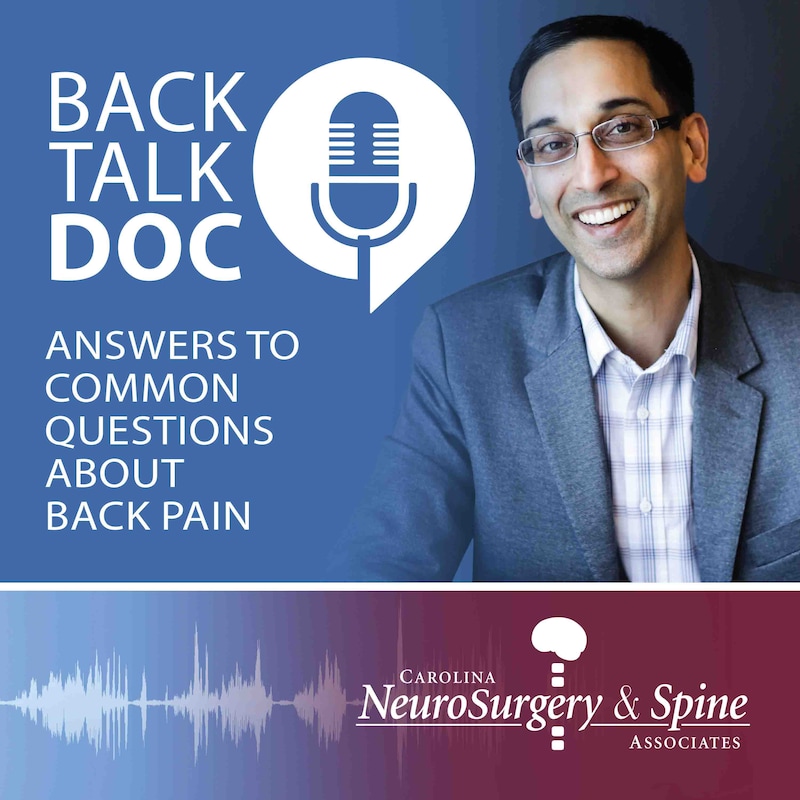Shownotes
It’s pretty common to have your posture be significantly affected by a spine condition. Whether you’ve had congenital scoliosis as a child or went through an accident that caused the deformity, it’s important to have an understanding of these so you know your options are towards recovery.
In this episode of Back Talk Doc, Dr. Sanjiv Lakhia speaks with Dr. Matt McGirt, a partner doctor at the Carolina Neurosurgery and Spine Associates. Dr. McGirt dives deep into spinal deformities that occur in adults, including complex spines and scoliosis. He discusses the types of scoliosis that develops in children, and once it stabilizes, as they grow older. The main thing to check for as an adult is the pelvic-spine-shoulder alignment, making sure that any malalignment does not progress over time.
He also lists down the various symptoms that signal a worsening spinal deformity, including more muscle strain and stress around the spine area. Conservative care is always the first option, where your quality of life is improved first, including doing minor outpatient procedures. It’s only when there’s a severe loss of quality of life such as reduced lung capacity that spinal surgery becomes an option, which Dr. McGirt gives a brief overview on.
Before things take a turn for the worse, you can help yourself by doing activities such as building core strength and flexibility, stretching, and losing weight.
Dr. McGirt suggests adopting healthy habits like cultivating relationships, developing hobbies and doing breathwork, to improve your overall health and well-being.
Key moments in the episode
- What is a complex spine 06:14
- Definition of spinal deformities 08:53
- Types of scoliosis developed in kids and adults 11:04
- Routine imaging for an individual with mild scoliosis 14:05
- Symptoms that signal worse spinal deformity 15:16
- Schroth method 17:20
- Symptoms to determine if surgery should be considered 18:17
- Non-musculoskeletal symptoms 19:40
- Surgeries to address adult spinal deformity 21:47
- Big scoliosis surgery 24:13
- Going to work after spinal surgery 27:38
- Surgical approaches 29:16
- Dr. McGirt’s personal health habits 31:50
Links mentioned in the episode
Back Talk Doc is brought to you by Carolina Neurosurgery & Spine Associates, with offices in North and South Carolina. To learn more about Dr. Lakhia and treatment options for back and spine issues, go to backtalkdoc.com. To schedule an appointment with Carolina Neurosurgery & Spine Associates, you can call us at 1-800-344-6716 or visit our website at carolinaneurosurgery.com.



